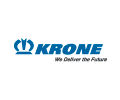Prime Minister Theresa May and her government might think they are ready to walk out of the EU talks but the UK logistics sector is urging caution to ensure that UK trade and industry can continue to operate seamlessly post-Brexit.
 Following the publication of White Papers on trading and customs agreements to be implemented in the event of a “No Deal” outcome to the ongoing EU talks, the Freight Transport Association, the UK’s largest and most active membership body in the logistics sector has issued its list of conditions which it says are required to Keep Britain Trading:
Following the publication of White Papers on trading and customs agreements to be implemented in the event of a “No Deal” outcome to the ongoing EU talks, the Freight Transport Association, the UK’s largest and most active membership body in the logistics sector has issued its list of conditions which it says are required to Keep Britain Trading:
Customs systems big enough to cope with the 255 million additional declarations that will need to be made each year, including fast-track arrangements for approved traders, pre-clearance of goods before a journey begins and post-payment of duties to avoid detention in ports.
Learning support for the 185,000 UK businesses that currently trade solely with the EU and will need to learn how to do Customs declarations for the first time.
Equally frictionless arrangements by other EU countries – our exports are their imports so it’s not just a question of getting the goods out of the UK, they will need to clear EU Customs as well.
Avoid vehicle checks at “roll on, roll off (ro-ro)” ports at all costs – an additional two minutes in clearance times at Dover will create a motorway queue 17 miles long, and delays in the days following the UK’s departure from the EU could be significantly longer than this at peak times.
No-cliff edge. Exporters and importers will need time to learn what they have to do under the new trading regime, as well as changing their procedures and instructing their staff. As James Hookham, FTA’s Deputy Chief Executive says, so far these businesses have no details of what is expected of them beyond the broad statements in yesterday’s White Paper: “Business cannot be expected to sort it all out at the last minute. It is not just about the Government being ready.”
Mr Hookham continues: “The customs White Paper is also silent on the need to agree a quota with the EU over the number of trucks that will be permitted to travel between the UK and the EU after Brexit. This is currently unlimited, but the automatic right to send a truck abroad will end upon Brexit. There is also a need to agree to continue to recognise the licences and qualifications of the drivers driving them.
“But by far the bigger issue, given the balance of trade, is with imports and the White Paper says very little about how the UK will impose Customs tariffs and border checks on freight flows from the Continent and Ireland. Disruption to imports will be felt far quicker by businesses and consumers than will a disruption to exports.
“None of these issues need be showstoppers but it is urgent that the Government commences detailed discussions with the logistics and supply chain sector immediately. FTA and its members await their call.”


.gif?rand=1482)











